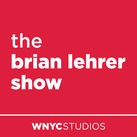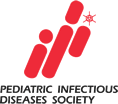Selected Media Coverage & Op-Eds

When it Comes to the Coronavirus Outbreak, there are Clear Lessons from SARS and Ebola
We are once again faced with the outbreak of an emerging pathogen with potentially global implications. We don’t know how bad it will get. But there is no excuse for not getting ready for the worst. We already know the consequences of inaction. 
How physicians can fight misinformation about vaccines
Today, patients’ concerns about vaccinations fall along a spectrum, with some refusing all vaccines while others are more hesitant about specific immunizations like the MMR vaccine or receiving several vaccines at once. As vaccines have eradicated illnesses, some patients no longer view these diseases as threats. They may believe that real or perceived adverse events from vaccinations are a bigger threat than the illnesses themselves, says Saad Omer, MBBS, MPH, Ph.D., director of the Yale Institute for Global Health in New Haven, Conn., and a vaccination researcher. 
We’re finally studying how to combat the anti-vax movement, but the methods may surprise you Despite anti-vax movements being nearly as old as the first vaccine, there hasn’t been much research at all on how to convince parents to vaccinate. Public health officials have learned some lessons from their own efforts to increase vaccination rates, but that’s not the same thing as truly understanding what works and what doesn’t. “There’s a little bit of a Dunning-Kruger effect going on where knowing a little bit about it means we think we know a lot more than we do,” says Saad Omer, an epidemiologist and vaccinologist at Emory University who regularly serves on advisory boards for vaccine-preventable diseases. “People don’t feel entitled to talk about the microbiology of a virus without having enough experience, but anyone with an advanced degree feels entitled to talk about vaccine acceptance.” In other words, doctors and virologists shouldn't talk about vaccination efforts as if they're experts on how to persuade uncertain parents. What we need instead, he explains, is to demand the same rigor in studying the social science side of vaccine hesitancy as we do for every other area of science. Only by actually studying the issue will we figure out how to increase vaccination rates. “We’ll have to have evidence-based approaches to dealing with this,” Omer says. “This is not amateur hour.” 
"Bußgelder wirken gut, um Impfquoten zu erhöhen"
Gesundheitsminister Jens Spahn will eine Masern-Impfpflicht. Der Mediziner Saad Omer forscht dazu seit Jahrzehnten. Er sagt: Die Forderungen gehen nicht weit genug. 
Students And Staff At LA Universities
Quarantined Over Measles Fears Rachel Martin speaks with Saad Omer, an infectious disease expert at Emory University, about the quarantine at California schools after a student contracted measles. 
Unaware he had measles, a man traveled from N.Y. to Michigan, infecting 39 people
Officials said the risk remains high for those who are unvaccinated or under-vaccinated and who travel to communities here or abroad where measles cases are raging. Gaps in vaccination coverage have led to a 20-year high in measles cases in Europe. Major outbreaks also are taking place in parts of the Middle East, Southeast Asia and Japan. More than 1,200 people have died in Madagascar. With spring break and summer vacations approaching, travelers visiting European countries with outbreaks, such as France and Italy, have a much higher chance of bringing infections back to “islands or pockets of vulnerability,” said Saad Omer, an infectious disease expert at Emory University. “Measles is a very unforgiving disease,” he said. “Even if most people are vaccinated, that number may not be high enough.” 
90 New Cases of Measles Reported in U.S. as Outbreak Continues Record Pace
The W.H.O. said that every region of the world was experiencing outbreaks, both in poor countries with low vaccination rates such as the Democratic Republic of Congo and wealthier countries like the United States and Israel, where the agency said the disease had spread among unvaccinated communities. “This is a very unforgiving disease,” said Dr. Saad Omer, a researcher at the Emory Vaccine Center in Atlanta who studies immunization coverage and disease incidence. The illness killed close to 110,000 people worldwide in 2017, according to the W.H.O. 
New York City vaccination order shines spotlight on insular Jewish community
Public health experts warn that the city’s use of emergency power, while reasonable, could further alienate the ultra-Orthodox who already isolate themselves from greater society. “When an outbreak is concentrated in a specific group, there is a risk of outsiders stigmatizing that group,” said Saad Omer, an infectious-disease expert at Emory University who researches public health and immunization. “This risk is exacerbated when a public health emergency is declared.” 
How Easy Are Vaccine Exemptions? Take A Look At The Oregon Model
It’s clear why parents are overwhelmingly choosing the online option, said Dr. Saad Omer, a vaccine and infectious-disease expert at Emory University in Atlanta: convenience. Omer and other public health officials find this trend worrisome, because kids who remain unvaccinated can catch — and spread — dangerous diseases such as measles, posing a risk to themselves and the wider community. 
Hanging with the anti-vaxxers

What’s happened since California let fewer families reject vaccines
A California law that aims to limit the number of people who can refuse vaccines has led to a slight improvement in kindergartners’ vaccination rate in recent years, according to a new study in Health Affairs. But the law was not as effective in private schools, and did little to break up localized clusters of children who opted out of vaccines. It’s these local clusters of vaccinations that put a specific community or school at the greatest risk, according to the study, which linked large measles outbreaks across the United States to “declining population vaccination and to voluntary abstention from measles vaccine.” “All disease transmission is local, just like politics,” said Saad Omer, a professor in global health and epidemiology at Emory University in Atlanta and one of the study authors. He added that national and state monitoring is not enough to effectively monitor infectious disease; more needs to be done on the local and county level. 
Why small groups of vaccine refusers can make large groups of people sick
Infectious diseases such as chickenpox and measles — once a rite of passage for American children — have been made uncommon because of vaccines. However, in recent years, an increasing number of parents are refusing vaccines, resulting in outbreaks. The overall vaccination rate in the United States is still high, fortunately, despite this worrisome trend. For example, according to the Centers for Disease Control and Prevention, more than 90 percent of 19- to 35-month-old American children are adequately vaccinated against measles and chickenpox. Why, then, do we continue to see outbreaks of diseases preventable in the United States? One reason is the epidemiological phenomenon of clustering of susceptible individuals — which happens when a group of unvaccinated individuals in a specific area grows large enough to render protection from overall high immunization rates less effective. 
Tdap vaccine given to pregnant women did not increase risk of autism in children, study says
By giving the Tdap vaccine to pregnant women, doctors hope to protect babies during those first few months — when they are unvaccinated and most vulnerable to disease. Saad Omer, a professor of global health, epidemiology and pediatrics at Emory University, said the study was comprehensive and well-designed. The results, he said, are “not surprising” but “very reassuring.” 
Kids in these U.S. hot spots at higher risk because parents opt out of vaccinations
Saad Omer, a professor of global health, epidemiology and pediatrics at Emory University, said the analysis provides a deeper understanding of where pockets of vulnerability exist. “We may have known about hot spots, but this is a little more systematic look,” he said. The analysis also shows a direct correlation between exemption rates and vaccination rates for the measles, mumps and rubella (MMR) vaccine and suggests other issues, such as access, are less of a factor in influencing vaccine coverage, according to Omer. Overall, the study found that states with more nonmedical exemptions had lower MMR vaccination rates. In contrast, the three states that have banned nonmedical exemptions — Mississippi, California and West Virginia — show the highest MMR vaccine uptake and lowest incidence of vaccine-preventable diseases. 
Opting out of vaccines leaves these US 'hot spots' most vulnerable for outbreaks
The new study is a "good contribution" to the field, said Saad B. Omer, a professor of global health and epidemiology & pediatrics at Emory University. Omer, who was not involved in the research, said one strength of the work is that the researchers conducted an in-depth analysis of individual states with nonmedical exemptions, which had never been done. Omer's own research has shown that states with philosophical exemptions had both higher rates of refusal and higher rates of disease; his study focused on rates of whooping cough. "Clusters of refusal overlap clusters of outbreaks," he said. 
Failure to vaccinate is likely driver of U.S. measles outbreaks, report says
A common scenario is this: A family leaves the country on vacation and one child gets infected and develops measles upon returning to the United States. “Then the child goes to a play group with other kids who are unvaccinated, and those kids catch measles,” said Saad Omer, a professor of global health, epidemiology and pediatrics at Emory University. Omer, who was not involved in the analysis, said the data illustrate the increasing number of “pockets of vulnerability” in the United States. Cases typically occur in such communities as well as in metropolitan areas or those with major ports of entry. During the 15-year period studied, the largest number of cases were in California (380), New York (250), Ohio (396) and Washington state (102). 
The moral differences between pro- and anti-vaccine parents
“Parents with the most concerns about vaccinating their children were twice as likely to have a high score for those clean, pure, wholesome themes as well as support of themes of individual liberty, compared to parents with the fewest concerns,” said Avnika Amin, a doctoral student in epidemiology at Emory University, and one of the study's authors. 
How Anti-Vaccine Activists Harmed Minnesota's Somali-American Community
“If there is a lesson in this unfolding tragedy, it is that public health authorities and practitioners need to work hard to build trust and resilience among minority communities targeted by vaccine skeptics,” writes Omer. |

Measles is back because states give parents too many ways to avoid vaccines
Between 2014 and 2014, Omer and his colleagues found a sharp 23 percent decline in the conditional admission rate between 2014 and 2015. So even with the rise in medical exemptions, the overall vaccine exemption rate still went down thanks to the decline in conditional vaccine entry to schools. Omer told Vox, “I’m not discounting eliminating nonmedical exemptions. It’s a reasonable option. But it may not resolve all issues.” That’s why California — which has seen 55 measles cases so far this year — is now cracking down on bogus medical exemptions, too 
If Anyone Tells You to Get a “Detox” Remedy for Vaccines, Run But the public health experts I spoke to said these seemingly evenhanded statements belie a very real threat. They worry that the claim that people need to “detox” after vaccines could undermine public trust in immunizations. “It’s just sad,” says Saad Omer, an epidemiologist who studies vaccine hesitancy at the Emory Vaccine Center. “They’re trying to make money off parental worry, and they’re adding to this environment of fear.” 
The World Health Organization Needs to Put Human Behavior at the Center of Its Initiatives
One underlying theme is the relevance of human behavior to many, if not all, of these threats. For some global health threats, the connection is obvious: non-communicable diseases and their associated behavioral risk factors (i.e. smoking or poor diet), or the reluctance of some parents to vaccinate their children and over-prescription and over-demand of antibiotics—a reason for emergence of antibiotic resistance—have clear behavioral connotations. For many others, the link is less obvious but equally important. For example, human behavior is largely at the center of global climate change and will be at the core of any substantial response to it. Similarly, HIV prevention, avoiding dengue carrying mosquitos, shoring up primary care delivery, and responding to Ebola and influenza outbreaks require modifying or working with human behavior. 
As measles cases spread, the tinder for more outbreaks is growing
Dr. Saad Omer has been worrying about the growing number of measles-susceptible people in this country for a while. In 2016 he and colleagues from Emory University published a study estimating the number of children and teenagers who are unprotected against measles. Using data from 2008 to 2013, they calculated that 12.5% of children and adolescents were not protected against measles, with the biggest portion being children 3 and younger. At the time they submitted their study for publication, in June 2015, they estimated that 8.7 million children aged 17 and younger were vulnerable to the virus. Omer’s study estimated that in 2013 alone, 4.5% of teens aged 13 to 17 had not received a single dose of measles-containing vaccine, years after they should have received both doses. That’s more than 940,000 children who are now young adults. The authors were concerned their study would appear alarmist, so they “cushioned” their message a bit,” Omer admitted. But to them, the future the data foretold was clear. “We predicted that if we don’t change the trajectory we’ll start seeing larger and more frequent outbreaks. And this is exactly what we are seeing,” he said. 
It’s Terrifyingly Easy to Get Measles Vaccine Exemptions
Evidence shows, however, that making it more difficult to obtain vaccine exemptions can reduce the rates of those who opt out. “The ease of exemption is a big predictor,” said Omer, who has been named the inaugural director of the Yale Institute for Global Health, starting in July. He favors counseling by a health care provider as one good way to strengthen requirements. That not only makes it harder to get exemptions, but also puts parents in touch with “the most trusted source” of information, Omer said. In Washington state, overall vaccine exemption rates fell by about 40% after passage of a 2011 law that required a health care provider’s signature on exemption forms, according to a 2018 study by Omer. 
Measles was eliminated. But we can’t be sure it’ll stay that way
Are these recent measles cases and outbreaks truly sporadic, or are we on the verge of the return of widespread measles? While recent measles outbreaks have been contained, the frequency and size of these outbreaks is alarming. A return of widespread measles is not inevitable, but to be sure we prevent it, we need to address vaccine refusal directly. 
California Shows The Rest Of The Country How To Boost Kindergarten Vaccination Rates
“You have this tinder that can start a fire,” Saad Omer of Emory University in Atlanta told BuzzFeed News, referring to the risk posed by local pockets of unvaccinated children. His research has shown that, for both measles and pertussis, outbreaks are associated with clusters of unvaccinated children. 
Don’t Let Vaccines Go the Way of Climate Change: Be careful how you call out our vaccine-skeptic president. This is one fight we can’t afford to politicize.
Increased politicization of the vaccination issue would be deadly, because it could spawn new anti-vaccination converts and further insulate the debate from scientific research, potentially lowering immunization rates and increasing the risk of disease. 
The Vaccine Debate

Flu Shot Tied to Healthy Pregnancy
Dr. Omer and his colleagues looked at the electronic medical records of 3,327 pregnant women between April 2009 and April 2010. The study, published in the journal Clinical Infectious Diseases, found that the infants born to vaccinated mothers had a 37 percent lower likelihood of being premature, and they also weighed more at birth than babies born to unvaccinated women. 
Why statin users should still get the flu shot, even if cholesterol drugs make it less effective
But older people are also much more likely to take statins. And two new studies, including one from my research group, suggest that people who take these cholesterol-lowering drugs have a lower response to the flu vaccine compared to those who don’t take them. 
Public Health Risk Seen as Parents Reject Vaccines
While nationwide over 90 percent of children old enough to receive vaccines get them, the number of exemptions worries many health officials and experts. They say that vaccines have saved countless lives, and that personal-belief exemptions are potentially dangerous and bad public policy because they are not based on sound science. “If you have clusters of exemptions, you increase the risk of exposing everyone in the community,” said Dr. Omer, who has extensively studied disease outbreaks and vaccines. 
How to Handle the Vaccine Skeptics
ATLANTA — The alarming number of measles cases — a record 644 last year, and 102 last month, the most since the disease was declared eliminated in the United States in 2000 — has focused scrutiny on parents who refuse vaccinations for their children. 
15 Myths About Anti-Vaxxers, Debunked
“It’s never a good idea to humiliate individual parents because it never changes anyone’s minds,” said Saad Omer, an associate professor of global health, epidemiology and pediatrics at Emory University School of Public Health and Emory Vaccine Center. 
Talking to Vaccine Resisters
Saad Omer at the Emory Vaccine Center has conducted studies on how schools, health-care providers, and state-level legislation effect vaccine uptake. |

Stricter Mandate, More Education Lifts
California Child Vaccination Rates The researchers found that the increase in vaccination rates reduced the chances that unvaccinated students would come into contact with each other, an easy way for measles to spread. The chance that two unvaccinated students would come into contact with each other at school fell to 4.56% in 2017, down from 26.02% in 2014, according to the study. Clusters with high rates of students without up-to-date vaccinations also decreased substantially in Central and Southern California but continued to remain high in Northern California, the study found. Yet the study also found the rate of kindergartners in California without up-to-date vaccinations rose slightly from 2016 to 2017, as the numbers of medical exemptions, students not subjected to immunization requirements and students overdue for vaccinations increased. “Unintended effects such as this need to be carefully evaluated,” said Cassandra Pingali, a former epidemiology graduate student at Emory University and now a research fellow at the Centers for Disease Control and Prevention, who is the first author on the study. “Policy makers should consider such consequences when creating new legislation.” 
Measles outbreak: How doctors can change anti-vaccine mind
Vaccine safety and effectiveness have been studied for decades, but research on how to talk about vaccines, and how to increase vaccine acceptance, is still in its infancy. In the midst of the measles spread in the U.S., doctors and public health workers are learning on the fly what works, and what doesn’t, when it comes to communicating with vaccine-hesitant parents and communities. “These outbreaks are showing us that we’re behind the curve” when it comes to vaccine communication research, said Washington Department of Health secretary John Wiesman. “There’s no reason people should be getting sick from vaccine preventable diseases.” And the little that is known has yet to “scale up,” or spread to every single doctor’s office and local public health department, said epidemiologist Dr. Saad Omer, a vaccine and infectious-disease expert at Emory University in Atlanta. “We have no coherent program for vaccine communication,” said Omer. 
Percentage of young U.S. children who don’t receive any vaccines has quadrupled since 2001
All but a handful of states allow parents to opt their children out of school immunization requirements for nonmedical reasons, with exemptions for religious or philosophical beliefs. The overall percentage of children with an exemption was low, 2.2 percent. But the report noted “this was the third consecutive school year that a slight increase was observed.” The report does not provide a breakdown, but the majority of exemptions are nonmedical, according to data reported by the states. Saad Omer, a professor of global health, epidemiology and pediatrics at Emory University, said that an analysis he and colleagues conducted a few years ago found the rate of increase in nonmedical exemptions had appeared to stabilize by the 2015-2016 school year after many years of increase. 
Anti-vaccine activists are playing with fire in Minnesota
But the major public health success of the elimination of measles is under threat. The concern that localized outbreaks like the one in Minnesota can morph into large, national-level events is not far-fetched. 
Third dose of mumps vaccine could help stop outbreaks, researchers say
The research, published in the New England Journal of Medicine and based on analysis of data from a large mumps outbreak at the University of Iowa in 2015-2016, showed that getting a third dose of MMR vaccine cut the risk of contracting the mumps by 78 percent. “The thing that this study particularly adds is that a third dose may have a role — at least in outbreak control — for mumps,” said Dr. Saad Omer, a professor of epidemiology and pediatrics at Emory University. Omer, whose work focuses on vaccinations, was not involved in the new study, which was published Wednesday. 
I was skeptical that the anti-vaccine movement was gaining traction. Not anymore.
“Even a modest decrease in [vaccine coverage] rates could be enough to cause future outbreaks,” wrote Saad Omer, a leading vaccine researcher at Emory University, in a Washington Post opinion piece. 
Measles No Longer Lives In The Americas -- Though It Still Visits
“This is a very big deal,” said Saad Omer, PhD, a professor of global health, epidemiology and pediatrics at Emory University School of Public Health and Emory Vaccine Center. “It’s significant because measles is a big killer that impacts real life and predisposes babies to other diseases.” 
Resurgence of Measles, Pertussis Fueled by Vaccine Refusals
In the study, led by Saad Omer of Emory University, Atlanta, researchers searched the medical literature for all reports of measles outbreaks in the United States from January 2000 through November 2015. They did a similar search for pertussis outbreaks since 1977, when cases of this disease reached their lowest point in the U.S. 
Safety of Flu and Pertussis Vaccines in Pregnancy Assessed
“This is a somewhat comprehensive meta-analysis,” said senior author Saad Omer, an associate professor of global health at Emory University. “The findings were not really surprising but they were reassuring in that all the bigger and higher quality studies, with a lower chance of randomness in the results, pointed in the same direction.” 
The Measles Outbreak Coming Near You
By wiping out many common and deadly diseases, and thus the fear they induce, vaccination can be its own worst enemy. However, we cannot afford to remain reactive. Seminal work in 2012 by Saad B. Omer, an epidemiologist at Emory University, has demonstrated that making it more difficult to obtain exemptions—say, by requiring physician consultation, education or annual renewals—reduces the rate of exemptions. “The balance of convenience should tip in the favor of vaccinations as opposed to vaccine exemptions,” he told me. 
Most Doctors Give In to Requests by Parents to Alter Vaccine Schedules
“Unfortunately, we don’t have a solid evidence base in terms of how to communicate to patients about vaccines,” said Saad Omer, an epidemiologist at Emory University. “A lot of approaches are wisdom-based, not evidence-based.” 
Vaccines' Benefits Trump Concerns, Experts Say

Undermining Confidence in Immunization Could Damage "Herd Immunity."
Success of immunization programs in the United States should not be taken for granted. It took decades of hard work by doctors, the Centers for Disease Control and Prevention and state and local health departments to get vaccination rates to where they are today — over 90 percent for vaccines against polio, hepatitis B, chickenpox, measles, mumps and rubella. 
When It's Hard To Get A Vaccine Exemption, More Kids Get Shots
|

August 19, 2016
Parents' Attitudes on Opting Out of HPV Vaccine Trying to impose mandates without broad public support can backfire, says Saad Omer, a professor of global health, epidemiology and pediatrics at Emory University Schools of Public Health & Medicine whose research focuses on state exemptions for vaccines required for school. "We're living with the legacy of going for a mandate a little too early," he says. Getting a particular vaccine needs to be a social norm before a law requires it, he adds. 
Statins May Dampen Response to Flu Vaccine
...The lead author on the second study, Saad B. Omer, an associate professor at the Emory Vaccine Center in Atlanta, said that nothing in these studies should lead to immediate changes in practice. “Even with the diminishing effect, flu vaccines remain the most effective tool to prevent influenza, including in the elderly,” he said. “They’re not perfect, but nobody should skip their flu vaccine.” 
California Vaccination Bill SB 277 Clears Senate -- And Will Save Taxpayer Money If It Becomes Law
Research by Saad Omer, an associate professor of global health and epidemiology at Emory University, has shown that states with religious and personal belief exemptions have had higher rates of exemptions and greater incidence of pertussis (whooping cough). 
Washington State Makes It Harder to Opt Out of Immunizations
...despite efforts to educate the public on the risks of forgoing immunization, more parents are choosing not to have their children vaccinated, especially in states that make it easy to opt out, according to a study published on Thursday in The New England Journal of Medicine. 
Swine Flu Shots Revive a Debate About Vaccines
One of the things they are focusing on now is immunization and pregnancy,” said Saad B. Omer, assistant professor of global health at Rollins School of Public Health at Emory University, “and their perceptions of the vaccine in use of pregnant women. It is not a benign perception in this case, and could have serious impacts, because pregnant women have high risk of complication if they get the swine flu.” 
Vaccine Issue Arises at Republican Debate, to Doctors' Dismay
“I was thinking: There’s a reason why we have a schedule,” said Dr. Saad Omer, an infectious diseases expert at Emory University in Georgia. He watched the beginning of the debate, then stopped to do work, but ran back in to turn it on again when some vaccine expert friends started posting on Facebook about the back-and-forth on the stage. “I had hoped was there would have been a stronger endorsement of the schedule,” he said. “It’s not one person’s opinion. It’s not even just the government’s opinion. It’s based on very broad scientific advice.” 
In Pandemic Study, Health Workers Stay Home
Researchers at the Johns Hopkins Bloomberg School of Public Health in Baltimore and Ben Gurion University of the Negev in Israel surveyed 308 public health workers in Maryland and found 46.2% said they would be unlikely to report for work during a pandemic. Less than a third believe they would play an important role in the health agency during a local outbreak. The results may not hold true for health departments in big cities or other regions, says co-author Saad Omer. The idea that so many public health workers may not show up for work is "a little unsettling," Omer says, but "you can't blame the public health workforce," which after a series of events from the anthrax attacks to Hurricane Katrina, is being asked to take on new roles. 
Fear of Vaccines Spurs Outbreaks, Study Says
Too many abstainers can put a town at risk, wrote Dr. Saad Omer, of Emory University in Atlanta, the lead author in the report... "People need to recognize that in the case of infectious diseases, what other people do impacts my child," Dr. Omer said in an interview. "If they live in a community that has a cluster of refusers, their risk of getting a vaccine-preventable disease goes up, just by virtue of who they play with." 
Clinicians Must Persuade Parents To Vaccinate Kids
Pediatricians have varying responses to parents who refuse to vaccine their children, according to a 2005 survey of members of the American Academy of Pediatrics. A large minority (40%) said they would not treat children from families that refused all vaccines, and 28% said they would not treat youngsters whose parents declined some vaccines. This approach is inappropriate, Dr. Omer argued. "The American Academy of Pediatrics' Committee on Bioethics advises against this and recommends that clinicians address vaccine refusal by respectfully listening to parental concerns and discussing the risks of nonvaccination," he and his colleagues wrote. 
Docs Can Sway Parents' Attitudes to Vaccination
Vaccine refusal is a growing phenomenon, as indicated by the proportion of children exempted from school immunization requirements for non-medical reasons, explain Dr. Saad B. Omer, at Emory University in Atlanta and his associates. Between 1991 and 2004, exemption rates rose from less than 1 percent to more than 2.5 percent in states that allow exemptions for philosophical or personal beliefs. However, Omer's team reports, "Parents who reported that decisions were influenced by their child's health care provider were almost twice as likely to consider vaccines safe as parents who said their decisions were not influenced by the provider." 
Doc Knows Best About Jabs
Parents who are hesitant about having their children vaccinated should listen to their healthcare provider. Doctors can play a critical role by explaining the benefits and addressing concerns about risks, researchers report in New England Journal of Medicine. Vaccine refusal is a growing phenomenon, as indicated by the proportion of children exempted from school immunization requirements for non-medical reasons, say Dr Saad B. Omer and his associates at Emory University in Atlanta. 
When Moms Get Flu Shot, Babies Benefit Too: Study
Dr. Saad Omer of Emory University in Atlanta and colleagues looked at 6,410 births between June of 2004 and September of 2006, checking to see how many babies were premature or small for gestational age. When flu was the most widespread, vaccinated moms had an 80 percent lower risk than unvaccinated mothers of having a premature baby, Omer said. The risk of having a baby that was small for gestational age was 70 percent lower for vaccinated mothers. 
Nevirapine for breastfeeding infants: benefit of 6-week course still evident after one year
Use of six weeks of extended-dose nevirapine compared to single-dose nevirapine accounted for a 62% reduction in infant mortality and a 46% reduction of HIV transmission or death in breastfed, HIV-exposed infants, according to the final 12-month analysis of the SWEN study. Saad B. Omer and colleagues reported the final analysis of the Six Week Extended Dose Nevirapine (SWEN) randomised controlled trials in the advance online edition of AIDS. These results confirm earlier reported analyses of six-week and six-month endpoints of the three SWEN trials. 
Low vaccination rates in some schools raise outbreak risks
"Whenever the community risk goes up, everyone tends to get affected, including people who are vaccinated," said Saad Omer, an Emory University scientist who researches unvaccinated clusters. "Even the best vaccines are not perfect." Clusters of unvaccinated people are, Omer said, like patches of dry grass that, with a single match, can start a wildfire that will burn not only dry material, but sometimes wet as well. The match could be a student who returns from a trip abroad with measles or a train commuter with whooping cough. "I don't want to exaggerate the problem. It is not that we are going to have the same rates of measles that we had in the pre-vaccination era any time soon," Omer said. "But the community risk of outbreak goes up, depending on what is happening in your community and in your school. That is why parents should be concerned, even if they do the right thing and get their kid vaccinated." 
Parents Delaying, Skipping Recommended Vaccines
Parents who skip or delay vaccines typically cite safety concerns, researchers said, including the now debunked idea of a link between vaccines and autism. What they miss is the risk of the disease they aren't vaccinating against, said Saad Omer, an infectious diseases researcher at Emory University in Atlanta. "Parents often have this perception that it's a benign choice, whether to vaccinate or not," Omer, who was not involved in the new research, told Reuters Health. He said parents who refuse vaccines tend to cluster together in certain areas -- increasing the risk of a local disease outbreak, even in kids who have been vaccinated. 
Can You Teach New Docs Old Tricks?
Younger primary care providers are more likely than their older counterparts to believe that vaccines do more harm than good, according to an abstract here at the Infectious Diseases Society of America 49th Annual Meeting by Saad Omer, MBBS, MPH, PhD, assistant professor of global health, epidemiology, and pediatrics at Emory University in Atlanta, Georgia, and colleagues. Dr. Omer said that for parents, safety-related issues are the most important. "The medical profession and the public health community have focused on messages to the general community in terms of vaccine safety....I think there should be some more emphasis on efficacy," he said. 
School Vaccines: More Students Skip Required Shots in 8 States
A rising number of parents in more than half of states are opting out of school shots for their kids. And in eight states, more than 1 in 20 public school kindergartners do not get all the vaccines required for attendance, an Associated Press analysis found.That has health officials worried about possible new outbreaks of diseases that were all but stamped out. "Vaccine refusers tend to cluster," said Saad Omer, an Emory University epidemiologist who has done extensive research on the issue. Parents who let their kids skip some vaccines put others at risk, health officials say. Because no vaccine is completely effective, if an outbreak begins in an unvaccinated group of children, a vaccinated child may still be at some risk of getting sick. 
The Panic Virus: The True Story Behind the Vaccine-Autism Controversy.
By Seth Mnookin "There has never been strong or reasonable scientific evidence to point to a link between thimerosal and autism," says Saad Omer, a vaccine specialist who teaches global disease epidemiology at the Johns Hopkins Bloomberg School of Public Health. "Even the people who advocated removing [thimerosal from vaccines], the Public Health Service, when they did that, they were not talking about autism." 
Vaccination Exemptions Put Kids at Risk
"The appropriate use of medical exemptions is important to maintaining sufficient herd immunity to protect those who should not be vaccinated due to medical contra-indications," said lead researcher Dr. Saad B. Omer. "Medical providers, parents, school officials, and state health officials are responsible for ensuring that medical exemptions are actually medically indicated." In an accompanying editorial, Daniel A Salmon and Dr. Neal Halsey, of the Johns Hopkins Bloomberg School of Public Health, said the findings should prompt action from those responsible for implementing and enforcing school immunization requirements at the state and local levels. 
Non-Medical Vaccination Opt-Outs on the Rise
An increasing number of parents are getting state approval to allow their children to opt out of school-mandated vaccinations for non-medical reasons, according to a new analysis published Wednesday. Dr. Saad Omer, author of the correspondence published in the New England Journal of Medicine, warned that this trend is leaving large populations of children at risk for developing potentially deadly illnesses that haven't been seen in the United States in many years. "Rates of exemption are substantially higher today than several years ago," said Omer, assistant professor of global health, epidemiology and pediatrics at Emory University in Atlanta. "Previously, rates were only rising in states with easy exemption policies, but now they are even rising in states that make it more difficult." 
Frequent Review Needed For Medical Exemptions to School Immunizations
Saad B. Omer, MBBS, MPH, PhD, of Emory University Schools of Public Health and Medicine in Atlanta, and colleagues said medical exemption rates should be monitored and continuously evaluated to ensure that medical exemptions to school-entry immunizations are not granted solely because they are easier to obtain than other types of exemptions. “Judicious use of the medical exemption option helps ensure that individual children and the broader community can benefit from high immunization coverage,” the researchers wrote. 
Girls May Not Have Riskier Sex After HPV Vaccination
Girls who had been vaccinated against human papillomavirus (HPV) weren't more likely to get other sexually transmitted infections or to become pregnant, in a new study from Georgia. "Some parents have expressed it as a concern," said Saad Omer, an infectious diseases and vaccine researcher from Emory University in Atlanta who worked on the study. "Parents can be reassured at least based on the evidence that young girls who receive HPV vaccines did not show increased signs (of) clinical outcomes of sexual activity," he told Reuters Health. 
What Jenny McCarthy and The Taliban Have In Common
In the summer of 2011, another noxious ingredient was added to the swirling milieu of conspiracy over vaccinations. Shortly after the killing of Osama bin Laden, it was revealed that the CIA had been running a fake vaccination campaign to acquire genetic material from members of the Bin Laden compound. "The credibility of health care workers involved in polio eradication seems to have taken a hit due to this episode" said Saad Bin Omer, an associate professor at Emory University with expertise in vaccine refusals both in Pakistan and the United States. The systematic countrywide massacre of hapless vaccinators morbidly underscores his point. 
2010 California Whooping Cough Outbreak Linked to Vaccine-Averse Parents
"We live in a free society, but infectious diseases are different from other phenomenon. Someone else's behavior can affect my child or loved one, or me," study author Dr. Saad Omer, an associate professor of global health, epidemiology and pediatrics at Emory University's Vaccine Center in Atlanta, said to HealthDay. 
Legend has it...: Panel Aims to Debunk the Myth of Harmful Vaccines Karachi: Pakistan has the highest global burden of childhood diseases and mortality and therefore, needs to utilise all the tools available to combat them, especially the most effective one — vaccines. These views were shared by Emory University associate professor of global health, epidemiology and paediatrics Dr Saad B Omer, while he was speaking at a panel discussion at the Aga Khan University (AKU), ... Dr Omer provided concrete statistical data to negate the theories about vaccines causing more harm than good to children. 
My Interview With A Pediatrician Who Thinks Vaccines Are "Messing With Nature"
For a reality check, I call up some outside experts, including Alanna Levine, a pediatrician in Orangeburg, New York, and a spokeswoman for the American Academy of Pediatrics, to ask what they thought of this boutique approach to immunizations. "My blood is boiling right now," Levine replies. "I think that policy is dangerous. I think it puts children at risk when they are most vulnerable." Saad Omer, a professor of public health and vaccine expert at Emory University, holds a similar view. "There is a reason why we give vaccines to young children," he says. "That's because the risk of disease is higher for certain age groups. You want to give vaccines as early as possible to protect the child. If you delay, you are leaving the most vulnerable period for the child open." Omer adds that he considers it very risky to vaccinate only against diseases that are prevalent in a particular community. "Most practices don't have a community surveillance system," he says. "They don't know whom these kids interact with or where they will travel. Infectious diseases are by nature infectious, so it's not just individual behavior that matters. It's everyone's vaccinations." 
Spreading The Message About Vaccine Compliance
What parents aren’t hearing enough, says RSPH researcher Saad Omer, is that pregnant women and their babies need vaccines so that both stay healthy. "When you start talking about childhood vaccines with parents after their babies are born, it is already too late," he says. "Young parents are more receptive when they are pregnant. There are already lots of messages that are targeted to them during pregnancy, such as breastfeeding and safety. We need to add mother and child vaccinations to that." "Vaccinating pregnant women is especially important in developing countries," he says. "Here in the United States, premature babies go to the NICU. In many parts of developing countries, there is no NICU. Worldwide, 1 million deaths are associated with preterm births." 
Meet the Anti-Vaccination Pediatrician Catering to California's Rich, New Age-y Parents
Butler spoke to Saad Omer, a professor of public health at Emory University, about the dangers of this one-shot-per-visit strategy. He worried that the incredibly elaborate scheduling of all these shots would mean that kids would skip some necessary ones, since "the parents have to take more time off to bring the child to get the vaccines," creating more opportunities for parents to miss appointments. |
|

























































